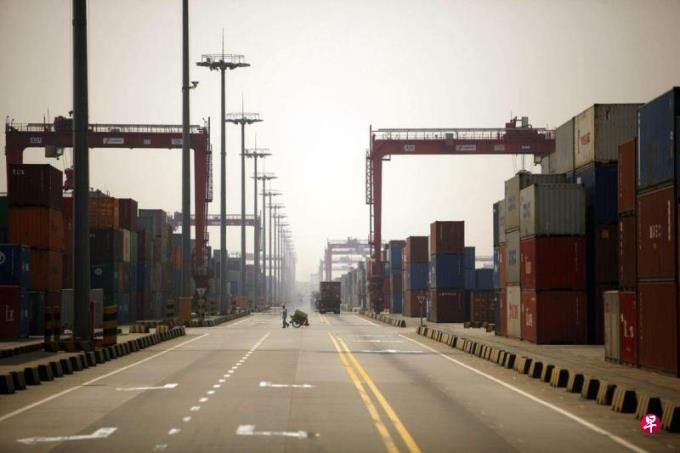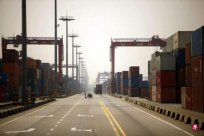
There is no free lunch in the world.A country that loses its ability to innovate and does not hesitate to drink thirst, rely on the so -called "inverted" to promote "progress", it is difficult to have a great future.
Twelve Pacific countries under the United States on October 5, 2015, reached a cross -Pacific Partnership Agreement (TPP).The trade liberalization agreement, known as the "establishment of trade rules for the 21st century", immediately attracted great attention from the world because it was a agreement that deliberately rejected China.In the words of US President Obama, "We will never allow countries like China to write global economic rules."
TheAgreement has not caused China to be alert; on the contrary, domestic public opinion generally interpreted TPP as "de -globalization" promoted by the United States.Compared to this "countercurrent", China, which is still in the "semi -edge" position in the global international division of labor, is self -proclaimed by global and free trade.In fact, it can be seen from the rules set by TPP alone. The agreement is not only related to "de -globalization". On the contrary, it represents the United States trying to rebuild a new global trend that has no degree of liberalization and a higher degree of liberalization.
Economic interdependence does not necessarily bring harmony in political relations between countries.On the eve of China joined the WTO (WTO) in December 2001, the US "contacting China" policy has already allowed the policy of "containment -contact".At the end of the year, the nuclear situation assessment report released by the United States has included China in the country where seven necessary countries can implement the first -initiator nuclear strike.If there is no change in the international strategy of the United States after the September 1st Incident -that is, the miracle of "Golden Ten Years" has a high -speed economic growth after the context of China's "Golden Ten Years" after being shifted from traditional geopolitics to the global anti -terrorism war.
The United States is willing to accept China to enter the WTO, and the first consideration is that at that time, the national strength of China was too weak at that time, and it was not worthy of US anxiety. Instead of integrating China into the world economic system, it can better serve the economic and strategic interests of the United States in the Far East.In recent years, the research of Western international relations in the world shows that China has promoted the promotion of the world rather than weakening the important national interests of the United States in the Far East.Not only that, the political elites in the United States have never been confused by China's "晦 晦" strategy.Without the impact of the global financial crisis from 2007 to 2009, the timetable for the United States' trade war against China may be greatly advanced.
In fact, with the implementation of the Obama administration in November 2011, the implementation of the Pivot To Asia strategy has become an important means of economic curbing China in the United States.Different from the tariff war started by the Trump administration in 2018, the TPP negotiation led by the Obama administration is to weaken China's more powerful economic weapons.
The key toTPP is mainly reflected in the three major aspects, that is, compared with the WTO, TPP stipulates higher labor standards and environmental protection standards, and strictly restricts subsidies for state -owned enterprises.The essence of the WTO rules is to induce growth and suppress the overtake, that is, by encouraging the export -oriented economy, at the same time, it is limited to the economic sovereignty of member states in maintaining industrial policies, forcing the post -developed countries to abandon economic nationalism.The economic and trade rules of these "Anti-Developmental" contained in the WTO are very likely that the country is likely to be trapped by the country's secondary income traps that will develop in the "growth and no development" and "semi-edge development".
All the mysteries of China's export -oriented growth miracles have been established after entering the WTO.Increasing these two standards (including allowing the formation of independent unions) will directly weaken the cost advantage of Chinese products.The strict restrictions on state -owned enterprise subsidies will be greatly constrained to implement the implementation of industrial policies related to "Made in China 2025", which will make the industrial upgrading of Chinese enterprises difficult.It can be said that the birth of TPP not only weaken China's growth potential, but also inhibits China's development capabilities, and has formed a major constraint on China's structural transformation and modernization process.
China is facing two dilemma -joining, in the short term, trade opportunities can be preserved, but industrial upgrading and long -term growth potential will be severely suppressed; without joining, the TRADE PERSION effect isLost will immediately endanger China's current economic growth, and social and political consequences are unpredictable, although the autonomy of development has not been affected.
It is puzzling that the trade -off of whether China has joined the TPP in China has not been known.In March 2018, the TPP member states reached a new agreement under the leadership of Japan under the leadership of the United States (January 2017) and renamed the Capital Comprehensive Progress Progress Agreement (CPTPP) of the Trans -Pacific Partnership.Three and a half years later, on September 16, 2021, the day the day when the AUKUS (AUKUS) for the Chinese Australia, British and American Military Alliances (AUKUS), the Ministry of Commerce officially submitted to CPTPP to apply -this move with increasingly heavy geopolitics to resolve the increasingly heavier geopolitical politicsThe clear intention of stress, the sense of urgency here is perceived by the world.Then, the CPTPP was written in the 20th National Congress of the mainland government at the end of October 2022.The Central Economic Work Conference in December 2022 further made a decision to "speed up the addition of CPTPP".
The reform of the system still depends on it?
CPTPP rapidly heating up in China indicates that its importance has surpassed the consideration of geopolitics, and prioritize the goal of responding to the current economic difficulties.After all, maintaining economic growth is related to the legitimacy of the regime.CPTPP has also been given the sacred connotation of "forcing reforms" and "second to the WTO".It is worth noting that since China has strived to join the WTO in the late 1990s, similar words are endless.
The question is that China has been in the reform and opening up for 45 years, but it still has to rely on external forces to force system change. Isn't it proved that the system is dead and has no ability to change itself?Secondly, the high price of the WTO before 22 years was portrayed as "forcing reforms" -the popular saying at the time was called "the government's entry into the WTO", that is, forcing the government to evolve in the direction of openness and transparency and rule of law; this "inverted"The effectiveness is obvious to all.Furthermore, the export -oriented strategy is not suitable for a large country (Lee Kuan Yew) in the long run. Since it was officially proposed in May 2020, it was officially proposed to "internal circulation", and then "build a large market in China" as a cope with the trade warThe great strategy of the New Cold War is still because of the "export -oriented" idea, and it is so urgent (this situation is easily used by negotiating opponents). How can it become a psychic medicine for China to go out of the economic difficulties and go to independent development?
As the world's second largest economy, is it a dead end not to join CPTPP?After Trump came to power, the United States immediately exited CPTPP -this was a strategic loss.But the successor of the Democratic Party Biden has no intention of returning to date because the US government is regaining the competitiveness of the United States with unprecedented economic nationalism.It should be noted that the United States itself is a large market, and it is self -evident.Countries like the United States attach great importance to their own sovereignty and clarify that "economic security" and "national security" are compared with the discussion, and they will not return to CPTPP in order to return, unless the latter meets its demands in national interests.
Since the end of World War I, the importance of the majority of domestic markets for the survival and development of the country has been recognized and valued by elites in various countries.During the Weimar Republic, German Foreign Minister and Outstanding Politician, a German foreign minister with freedom internationalism, realized that to compete with the United States with almost unlimited resources and the extremely vast domestic market, Germany must control geographical control geographicallyWith a population scale of 150 million, and rich resources (parts) and the vast space of Central and Eastern Europe, the scale economy cannot be achieved;Also at the expense.The ideal of Mitteleuropa, the Central European Market of Streesman, became a reality after World War II.Fortunately, under the gradual trend of the "free and democratic order" after the war, Germany United France, by promoting the construction of the European market instead of the war, once again became an economic giant -a pivotal economic superpower.
China already has an empire -like geography and population scale, which is a favorable development condition that many countries envy.As long as the proper political and economic reform measures are taken, especially the unified domestic large market, it will be transformed into a strong consumption power that is sufficient to support the upgrading of the national industry and the transformation of economic transformation -this itself is enough to become China's favorable diplomatic negotiations in diplomacy.Chips -to achieve independent development at the minimum open cost, it is not unimaginable.Is this more conducive to China's long -term national interests than the "admission" CPTPP with unknown risks and unknown future?
There is no free lunch in the world.A country that loses its ability to innovate and does not hesitate to drink thirst, rely on the so -called "inverted" to promote "progress", it is difficult to have a great future.Dare to face up to your own issues, especially the disadvantages of the system. Based on this, reshape new reforms and development consensus. After a little good market in China, with history as a mirror, it should become the glorious mission and history of Chinese politicians.responsibility.




